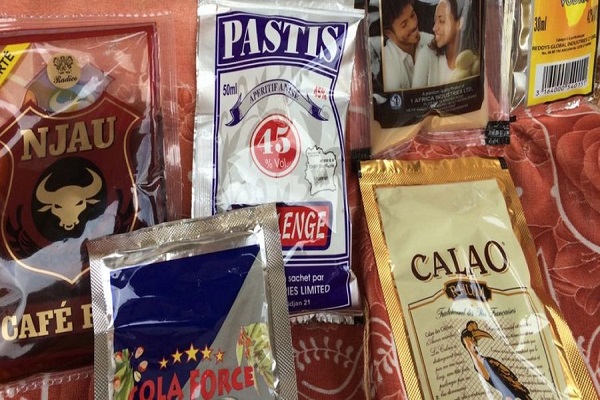The House of Representatives Committee on National Agency on Food, Drugs Administration and Control (NAFDAC) headed by Regina Akume, has ordered the suspension of the ban imposed by NAFDAC on the sale of spirits and alcoholic drinks in sachets and pet bottles pending the outcome of its investigation on the matter.
This came following days of protests across the country, against the sachet alcohol ban. The House Committee stated this after its public hearing on the NAFDAC ban on Thursday at the National Assembly Complex.
In attendance were House Committee members, including the Chairperson, Regina Akume; Deputy Chairman, Idu Obiajulu; NAFDAC DG, Prof Mojisola Adeyeye; Minister of State for Health, Tunji Alausa; DG of Manufacturers Association of Nigeria (MAN), Segun Ajayi-Kadir, representatives of the spirits and alcoholic drinks producers; representatives of the Food, Beverage & Tobacco Employers and Distillers and Blenders Association of Nigeria; officials of the Nigerian Police Force; Customs and Excise; Federal Road Safety Corps; organised labour and the civil society.

At the end of the hearing, the NAFDAC DG claimed that the ban was imposed to protect the health and welfare of children, youths and other vulnerable groups. However, the House Committee aligned with the perspectives of the producers, civil society and organised labour that the unemployment and hardship being occasioned by the closure of factories as a result of the ban far outweighed the health concerns of NAFDAC.
According to the House members, the proper step is to put access control procedures in place to prevent children and youths from consuming the alcoholic contents of the sachet and pet bottles.
With this, the House Committee moved that the NAFDAC ban be suspended pending the outcome of its inquiry.
Several stakeholders had protested in several cities, including NAFDAC headquarters office in Abuja, and Lagos. There were also demonstrators brandishing ‘Save our jobs’, ‘Let poor Nigerians breathe’, ‘Let beverage workers breathe’, amongst others, at factory sites of some of the alcohol companies in Ota, Ogun State. They insist that the ban will lead to about 500,000 job losses.


